Yavilah McCoy is an educator, activist, and spiritual teacher who has spent the past 20 years engaging multi-faith communities in issues of diversity, equity, and inclusion. She is unapologetically black, Jewish, and woman, and she believes she is her sister’s keeper. Beyonce feeds a piece of her soul.
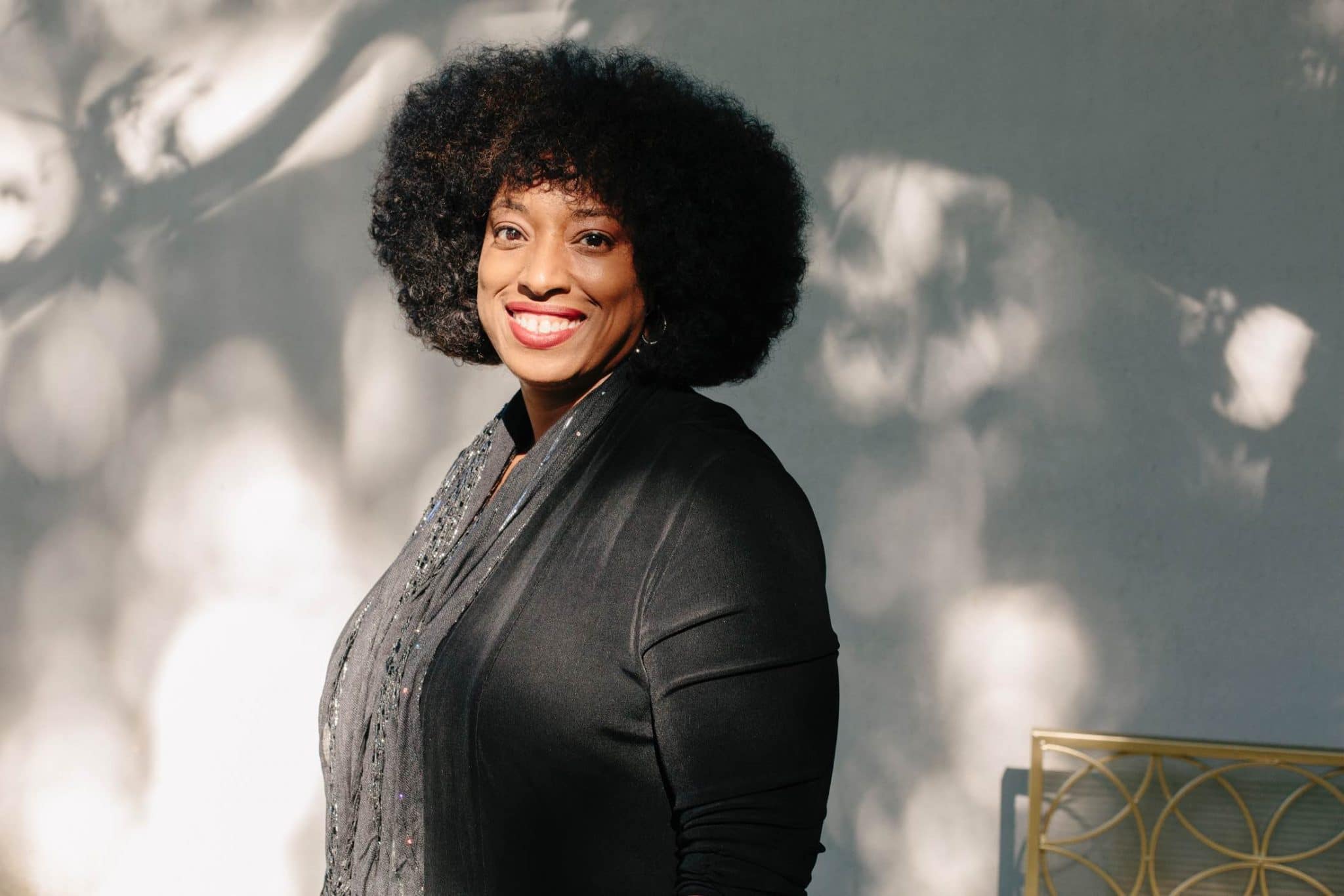
Is there a story behind your name?
Yavilah means jubilee.
The jubilee is the 50th year of celebration that comes after seven cycles of harvest, where, traditionally in Jewish law and in the land of Israel, all slaves go free and all debts are repaid. It’s a year of culminated energy, both of resting the land and going through cycles that lead to freedom.
Jubilee would be yovel, but my name is Yavilah. The feminization of that concept is meaningful to me. The fact that my parents chose to not name me Yovel or even Yovelah, but Yavilah brought in all sorts of lovely energy to my beginning. If you translate Yavilah directly in Hebrew, it means “he will bring to her” or “it will come to her.”
Whenever I think about my name, I feel very thankful that I had parents who were grounded in the Jewish tradition enough to want to give their children names that related to freedom, hope, courage, and making the world a better place. I could have been Mary.
What is your earliest memory?
My sister and I integrated Orthodox yeshivas in Brooklyn when we were very young. It was her and me and maybe 300 other little, white, Jewish children in the school.
This was an environment where people did not have an expectation that little Jewish children would look like us.
There was this one teacher that I had, and I could just tell that there was nothing coming from this woman’s heart but love. She put us on the carpet in a circle and she would say, “No one else can speak.” She would say it in Hebrew: “Rak Michael” or “rak Yavilah.” When she said rak, it was the Hebrew word rak, which means “only,” but it was the 70’s, and I was hearing “rock steady.” Whenever she would say, “rak Yavilah,” it was like her invitation to me to rock my little show and take up space.
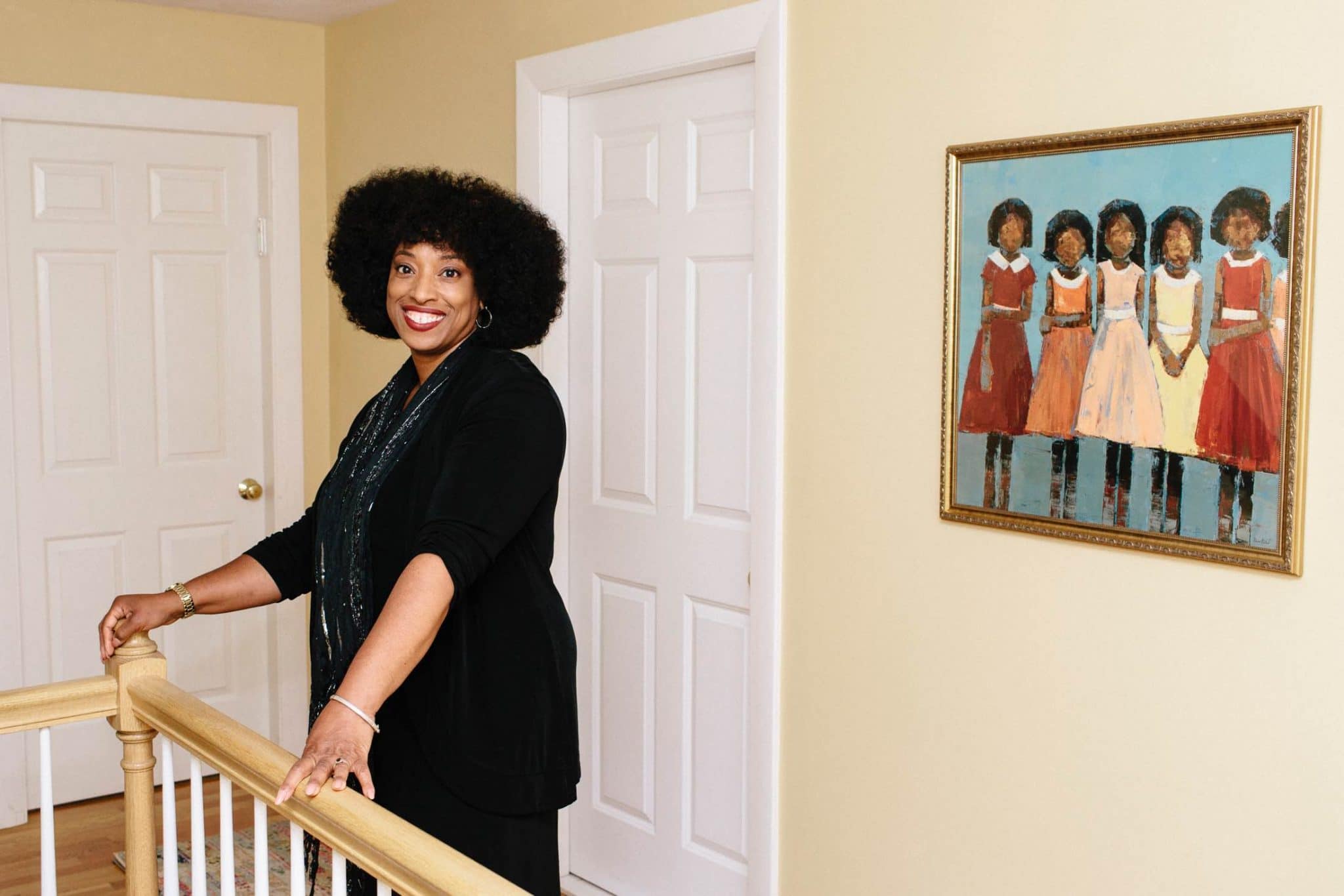
What is a family story or history that you carry with you?
I was listening to NPR, and they were talking about Dred Scott as an individual and sharing all sorts of things about his life. We know about the decision that came down about the 3/4 of a human being, but we don’t often see the person who was petitioning for freedom at a time when it took a huge amount of courage to do so.
Listening to that, I was thinking about my own ancestors and trying to get a picture of the simple things that they did on a day-to-day basis that took a lot of courage to be able to sustain themselves, and how formative those small, everyday decisions were in making space for our family to continue, for us to even be alive.
I am blessed, because not all African American families have been able to chronicle their history.
I know that I am descended from both slaves and freed blacks in the United States.
One story on my mother’s side is of a gentleman in North Carolina who the slaveholders put in a pit. They told him because he was so strong that they were going to put him into a pit with a bull, and if he could wrestle the bull and come out alive, they would give him his freedom. If not, it would be for the entertainment of his slave owner and the slaves owners that they invited to watch this spectacle.
He killed the bull and the slave owners watching this happen were shocked. He said, “I’m going to take my freedom. I’m going to go up here to this hill, and I don’t want any of you to come up onto my land. If you come up onto my land, you’re going to get what the bull got.”
He had to fight a bull in order for us to walk around in our humanity, as free as we were born.
Then I look at my great-grandmother, who left the South during the Depression. All of my mother’s family were educated people, but they left the South during the Great Migration to find work. The work that was available was painting ships at the dock. She had a long, black ponytail that she wrapped up into her cap and swung from rafters and painted ships dressed like a man to support not just her immediate family, but also her family down South, that, one by one, she brought up to Brooklyn.
My great-grandmother lived to be 99. I would tell her when I was in college, “Oh, Nana, I’m so tired. I have to get up so early. I’m working my way through school. Why do I have to have a job and try to go to school at the same time? It’s so hard.”
She would say, “Baby, you don’t know what tired is. Try being slave.”
Slavery was one generation away from her. Her mother was a child when slavery was abolished.
On one level, it’s kind of harsh. On the other hand, that type of strength, the strength to endure, resilience, comes to me directly from my family line and from people who were making choices for generations to live, to sustain, to support, over and over again, odds that should have very easily killed them.
It’s really important to me to not live my choices today outside of relationship with that history. I really want it to be alive for me and my children. “Who paid our passage?,” as Maya Angelou said.
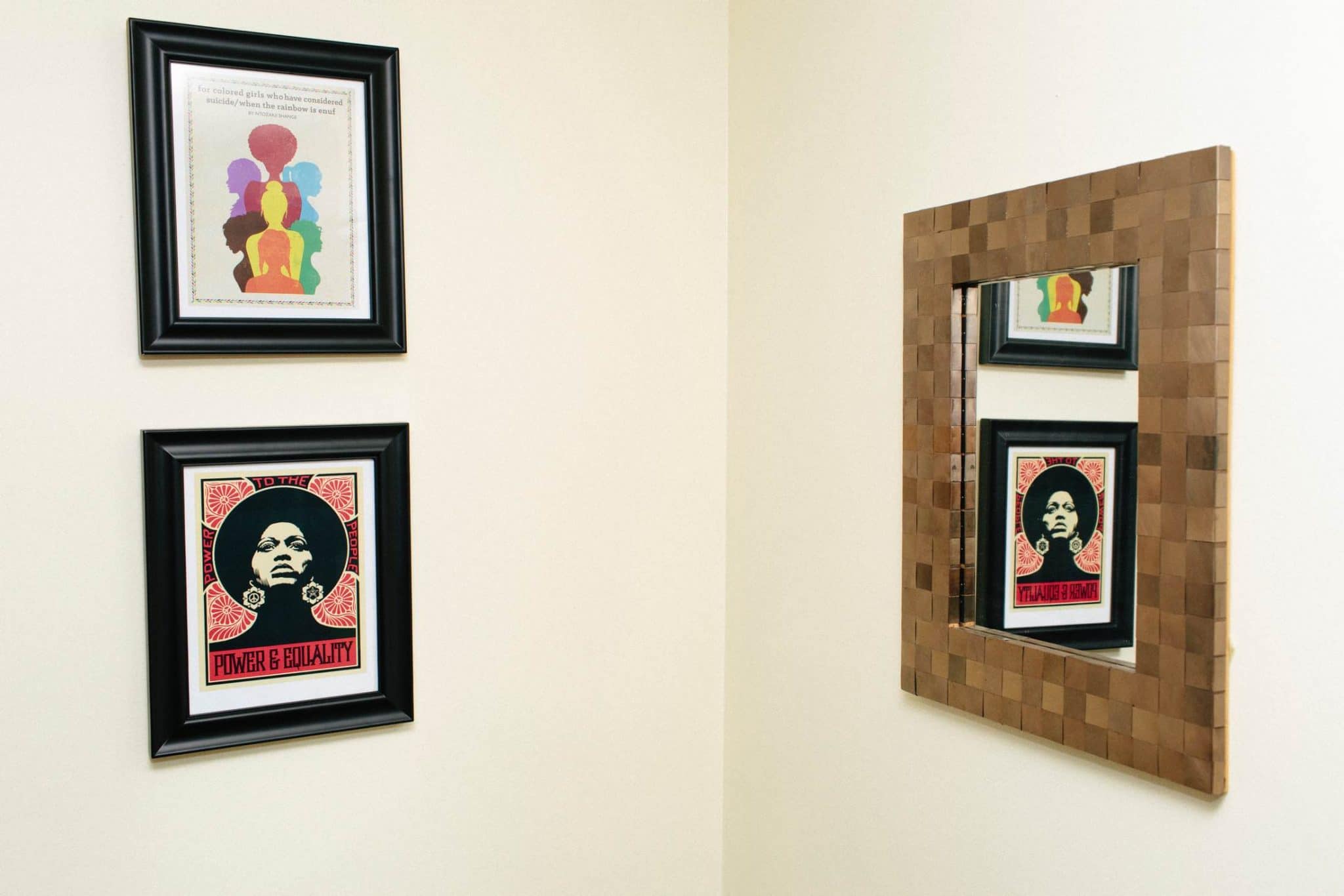
How did Judaism play into your upbringing?
For many Jews of Color, it’s been a luxury to identify on the Jewish side and more salient for them to identify around ethnicity and culture. That contrasts with my own experience.
I was born an Orthodox black Jew.
What I was taught from the time I was very young was that anybody who denied my connection or my affinity with the Jewish people was confused, or they just hadn’t read the rule book. There was this thing that my parents were trying to instill in me, which is that Judaism is yours, and that the Jewish people are yours, and don’t you let anybody take that away from you. I had to fight for it, because the body that I was traveling in would cause people to question whether I was Jewish.
From the time I was very young, being Jewish meant a lot to me. It wasn’t a choice, it was a part of my identity, deeply embedded. As I grew older and I started to become more immersed in Judaism culturally and become Jewish literate – I can speak Yiddish and Aramaic and translate the Talmud – I also was looking for places where I could translate that into my identity as a person of color.
I had to make space for myself in the Torah.
My Jewish identity has been a place of struggle, but it has also been a deep place of hope.
I believe the world needs the Jewish people, because our story tells the story of human transformation, of not having things handed to you, but making them yours by translating them, by making them alive, by living. We call our Torah a living Torah. We call our way of life Mayim Chayim, Living Waters.
We can determine our own relationship with God, with spirituality. We can speak out like our prophets did and cry that justice is the way of life, not just for one or two, but for all of us.
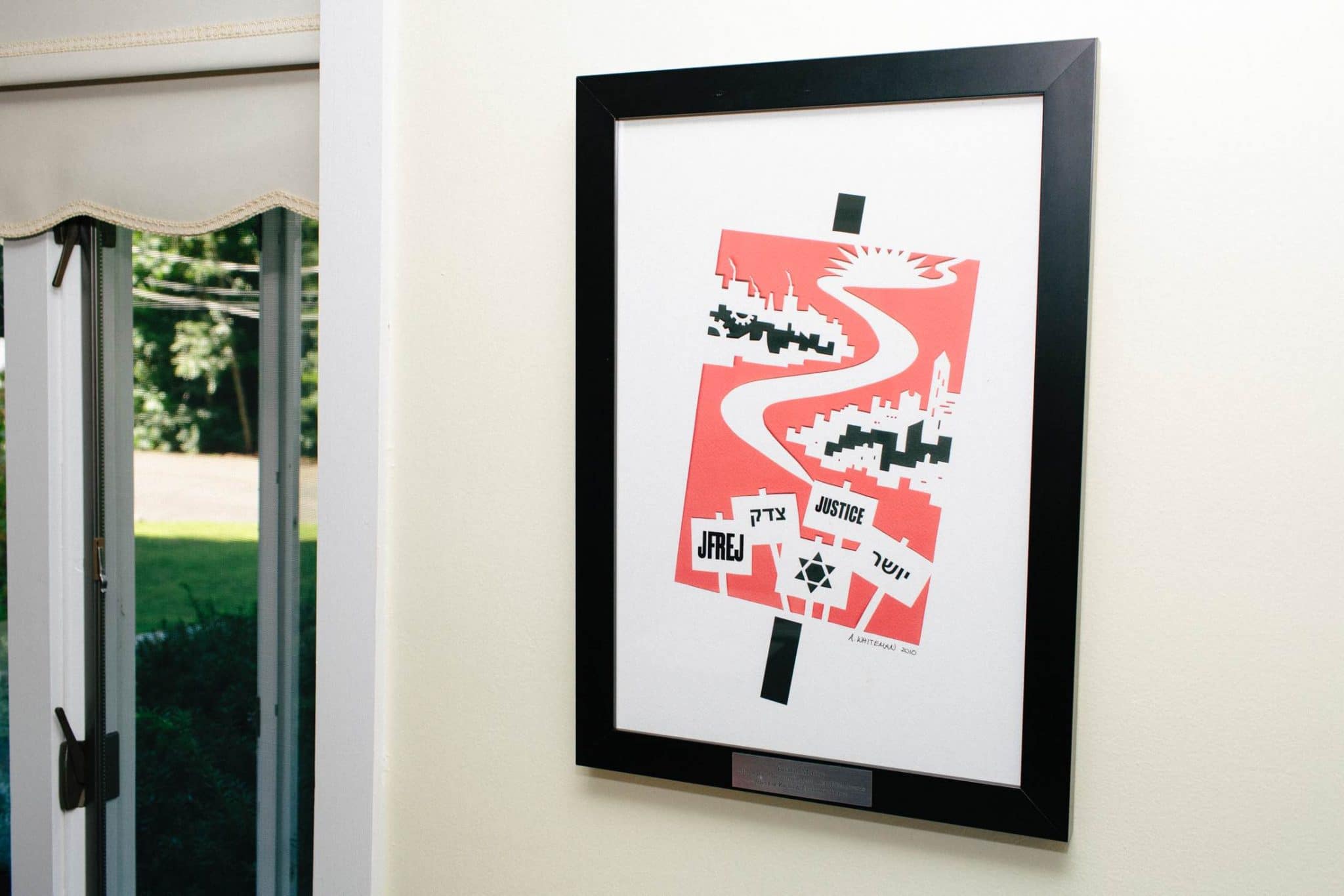
You’ve said you are “unapologetically black, Jewish, and woman.” What does it mean to be unapologetically yourself and how can others be unapologetically themselves?
One of my mentors once gave me a visualization where she asked me to zone out and see myself first in my house, and then see myself on my block, and then see myself in my city, and then see myself in my state, and then see myself on my continent, and then see myself on the globe, see myself in the universe. She said, “The further you zone out and are still able to see yourself, you develop a sense of awe and humility for the fact that you exist. Your existence is connected to all those layers of existence.”
My mother taught me that God laughed on the day that we were each born. She threw her hand on her hip and said, “Mmmm, mmmm, mmmm, this one is good.”
There was something missing in the world prior to my being born, and that truth means that I don’t need to apologize for all that I am.
My job is to be in this world and refine who I am, what I am, make it relevant to this world being a better place.
So, what do you do when your body or your way of being, or something that people impose on you, is supposed to give them the right to say you’re less than? The first thing you have to do is not apologize for naming that as a lie. Then two, continue not apologizing as you tell the truth, which is the day that I was born was the day that a contribution was made to the world, and I will live into that unapologetically.
When people try to say to me, “Oh, you’re black and Jewish? How are you black and Jewish?,” I say, “I’m fine Jewish. How are you Jewish?”
Somewhere inside your soul, have an echo chamber that says you matter, you are valuable, your essence is meaningful and meant to be here.
Don’t let anybody take that away from you. I got that from people in my life who said that to me over and over and over again until I believed it.
Do you have a personal mantra?
I often say to people, “I have not arrived, I have only agreed to go.”
That came to me from one of my mentors who said that our greatest calling as people who do the work of facilitation is to practice not having arrived, but always being ready to go and go and go. It can be debilitating, exhausting, and demoralizing to invest time and effort over and over and over again in the same thing and not necessarily feel a sense of having arrived. Hearing her say that in my mind often has calmed me and given me the stamina to keep going and know that there’s lots of richness, lots of learning, lots of beauty in the going.
The other one is that when we are in time, we are on time.
That one is very important to think about when we are trying to be centered in caring for ourselves as Jews of Color.
I use the metaphor of Shabbat and the teachings of Heschel around the idea that you change the universe by creating time, by dedicating your presence, your thought, your connection to principles and values that you are going to enact in a particular time. That time becomes time. You don’t have to measure yourself beyond that time.
To create space for others to be in time with each other, in a very particular way, with specific principles and values in place, with liberation as our center – every time we do that, we’re on time. We’re doing exactly what we’re supposed to be doing. It’s a beautiful way to move through the world.
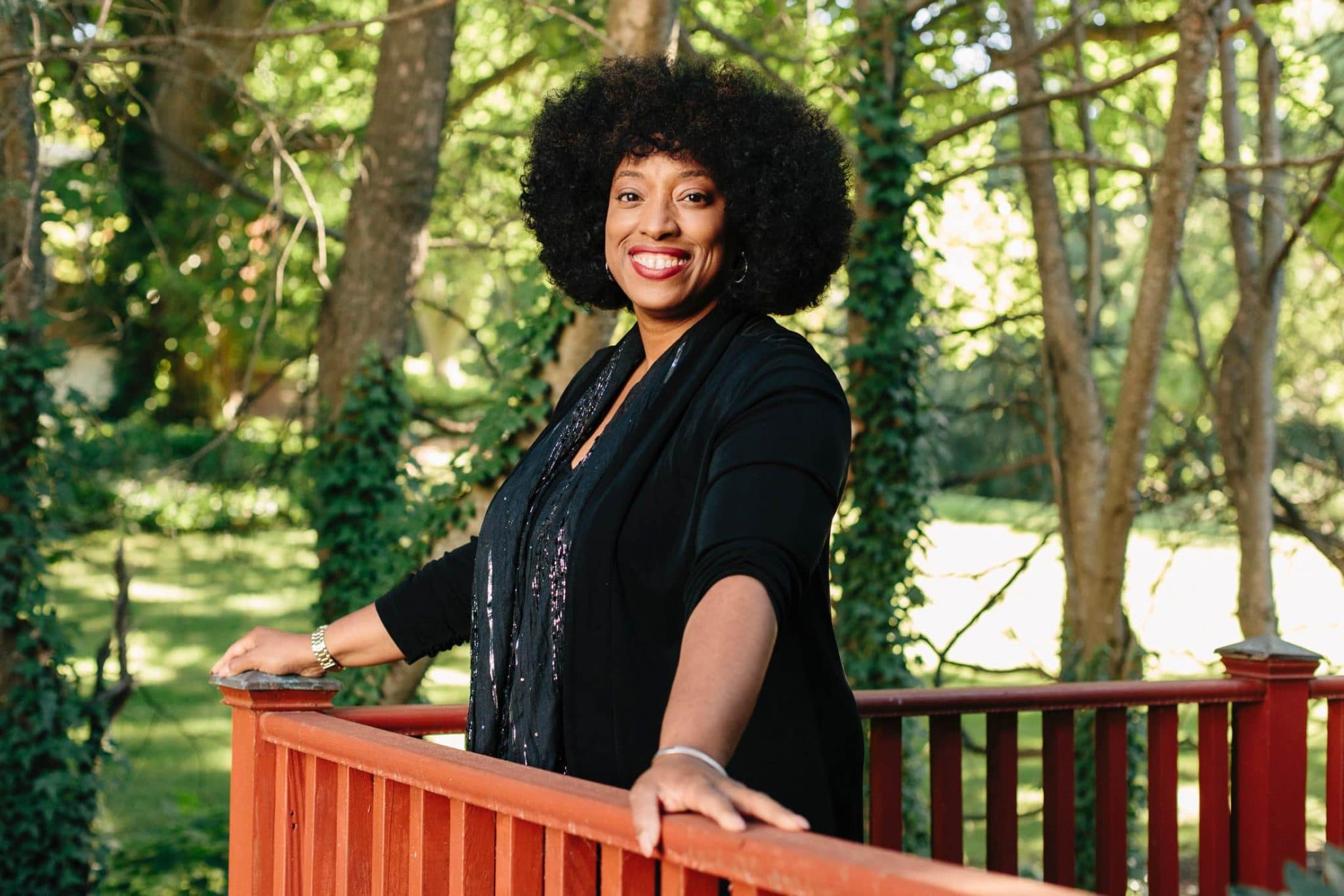
Tell me one thing that works for you and your husband as a team.
My husband is my best friend. He holds for me the truth of my existence. I know I can come back to this man and tell him almost anything, and he will tell me the truth.
He will love me through my best side and also through the parts of me that are challenging.
We make each other better. Where I’m not as strong, his quiet strength will rise, and where he’s not as strong, my bold, loud, Yavilah-ness becomes hope and strength.
I’ve grown up with him and he’s grown up with me, and when we laugh and finish each other’s sentences, and even when we’re pushing back against each other, there’s a joy knowing that this, too, is a part of my evolution, and I would never want it to be another way.
What has been the biggest surprise to you about being a parent?
There has to be room for my children to be their own human beings, outside of my gaze, making choices that are very different than my own. It was my job to put values and lessons and experiences in front of them, and it’s also my job, as they get older, to let that soup be cooked.
You put all the ingredients in, you turn up the temperature, you let it boil, you let it go down, but once the soup is cooked, it’s cooked. And whatever comes out of that pot, is what’s coming out of that pot.
It’s been a joy for me to be able to see my children making their own choices about how they would like to live.
I’m not driving on any of those decisions now. They’re driving and to get into the car and be in the back seat, to learn how to say less, to hug more, to pat on the back more, and to say “yes, keep going” more, that’s the new stage for me. I’m trying to lean into it. I’m learning as I go.
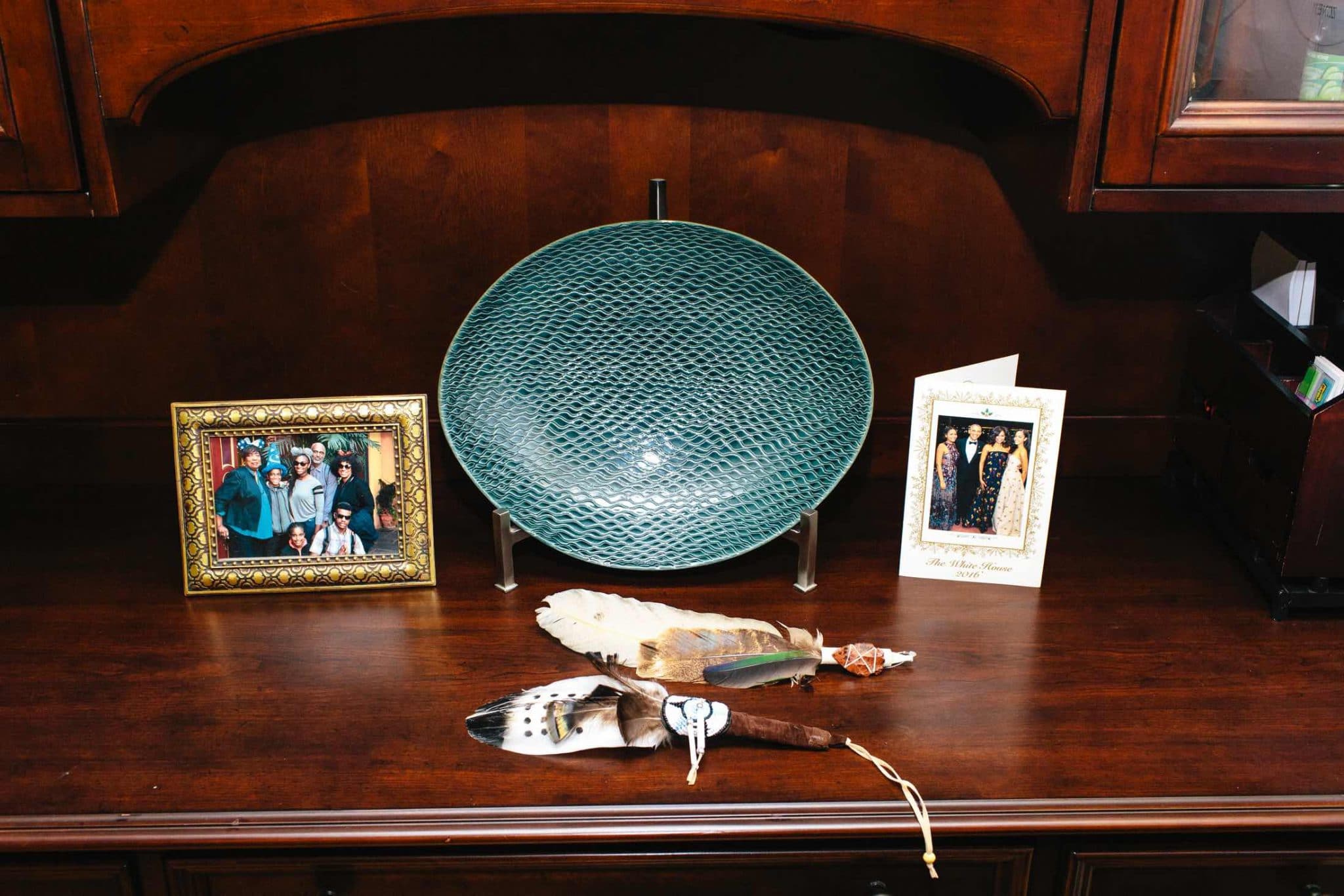
What keeps you awake at night?
I’m concerned about the state of our world.
I was raised on this idea of social justice and that what happens in the world matters and that I am my sister’s keeper. I never felt that it was an option for me not to care what was happening to the person next to me, and there’s some way in which our world now has bought into a sense of individualism.
Just in my neighborhood, noticing the number of people who don’t know each other, who walk past each other and just say good morning but know nothing about what’s happening behind each other’s doors.
We accept a society where we’re not proximate to one another.
Where people think that doing social justice is getting in a car and going down to Ferguson, or doing a march, but not thinking that they have to travel three blocks and go into the Boys and Girls Club and volunteer.
There’s a way in which we have learned to become disaffected from each other’s experiences and to let those experiences be virtual. It keeps me up at night because I know the only thing that will make you put yourself in a place of discomfort, that will make you risk something, is a sense of deep human connection.
An emoji is the not the same thing as saying “I love you.”
Knowing how to express our feelings to one another is part of what makes us human. What keeps me awake at night is how are we going to use what we know in our work as facilitators and in the art of anti-oppression to keep people connected to that deep sense of their humanity so that we can make change together.
How do you fill your cup?
I get to do this beautiful project this year called the Jewish Women of Color Resilience Circle, and it’s built on three pillars.
One is personal ecology and self care, meaning how we care for ourselves so that we can better care for the world. The other is transformational spirituality, to have a relationship with spirit that nourishes that essence that carries us out into the world. The third pillar is transformational activism, teaching activism in a way that serves you and serves the world, and to hold that our job is not to die for the struggle, but to live for the struggle.
I was told by another one of my mentors that those who do the work of healing often do the work because they need healing themselves.
For 20 years, I haven’t really been afforded the opportunity to rest and to do self care, because I was a pioneer. All of the messaging that comes at folks who are pioneers is, “Please get it right or they’ll never let anybody else try it again.”
Because I didn’t have peers at the time when I started this work, there wasn’t somebody else to sit down with and say, “Hey, you know when that happens? or “Can we sit together and cry about X?”
I feel blessed to have arrived at the moment where I can say, “You know what I want to do? I want to reinvest in my community and give them what I did not get to have and make sure that their journey is bolstered with these resources, and we’ll make them strong.” What fills me is that I’ve reached a point where I can watch all these beautiful leaders emerge.
I can look around and really be in community with some super, badass leaders, that I love, I love, love, love, to pieces. They’re just so delicious and yummy. Every single one of them.

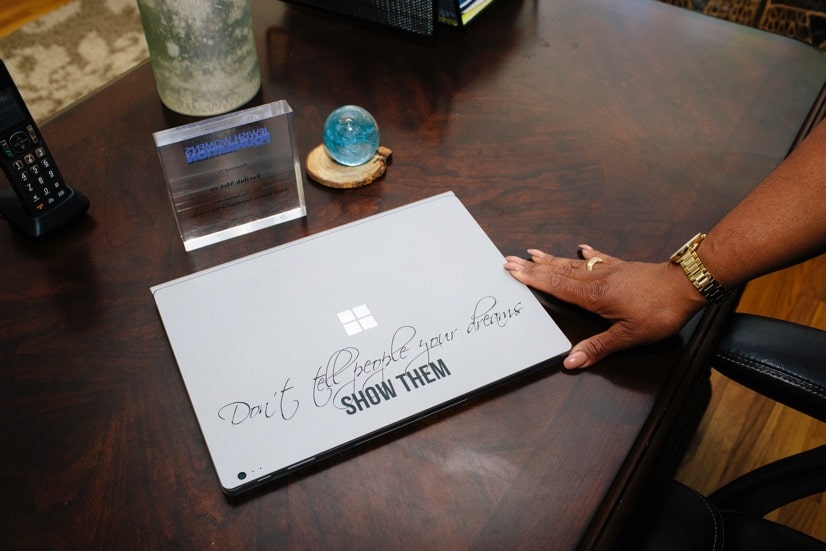
What are some of your favorite songs or musical artists?
India Arie is one of my favorite artists. I sing her music when I do work and I play her music for inspiration. She’s a transformational artist, and she has done the work on being an artist without sacrificing her soul. She self-produces, she does concerts for the people, and she’s done a lot of work in South Africa. I respect her as human being and as an artist, and I love the message that she puts out in the world.
I also love Beyonce.
What is it about Beyonce that speaks to my soul?
It is the way in which she is unapologetically woman, in the way she moves, in the way she takes up space, in the way that she speaks to power. Just look at that last piece that she did with Jay-Z in the Louvre, in the middle of this epic, epic space of wealth and art and canonization that left out people of color for hundreds of years. It was beautiful. She walks in there, in her beauty and glamour and diva-ness, takes up space, and takes no prisoners. When I see her do that, she feeds a piece of my soul and I just say, “Yes, woman, yes.”
I also like old school. My family grew up playing a lot of Motown and Temptations, The Spinners, and the Four Tops, and Marvin Gaye, and Aretha Franklin.
I do a lot of work around negro spirituals. Jewish gospel music and soul music run hand in hand, and I really love that music, too.
Favorite Jewish food?
In my house, Jewish food is Jewish soul food.
Even though it’s a traditional thing to have chicken or fish for Shabbat, the aroma in my house of my mother’s food comes out of our southern heritage. That means her lamb, from our Sephardic heritage, with cumin and cilantro and garlic and chili powder and turmeric, all of those Middle Eastern spices. Love it, love it, love it, love it.
Also, my mother’s collard greens, and her matzo ball soup and the stuff that she puts in it, like the sage and the little pinch of adobo.
There’s a way in which ethnic spice mixed into our Jewish food makes it really, really special.
Is there anything else you want to share?
I really love the Jewish people.
Being unapologetically Jewish means embracing that Jewish can be many things and educating people and increasing their awareness to how many different kinds of Jews there are.
I want more Jews to love themselves as Jews, and to really love the Jewish people, and to start loving the Jewish people by loving themselves. That will help us to do what we’ve got to do in the world, and that is what inspires almost everything that I do. Both my pushing and my tugging, my standing still and my hesitation, it all comes from a deep sense of love for the people that I want to see actually live into our purpose.
Photos by Elena Mudd
Thank you for visiting Arq!
Arq is no longer publishing new content. We hope you'll enjoy our archived posts.